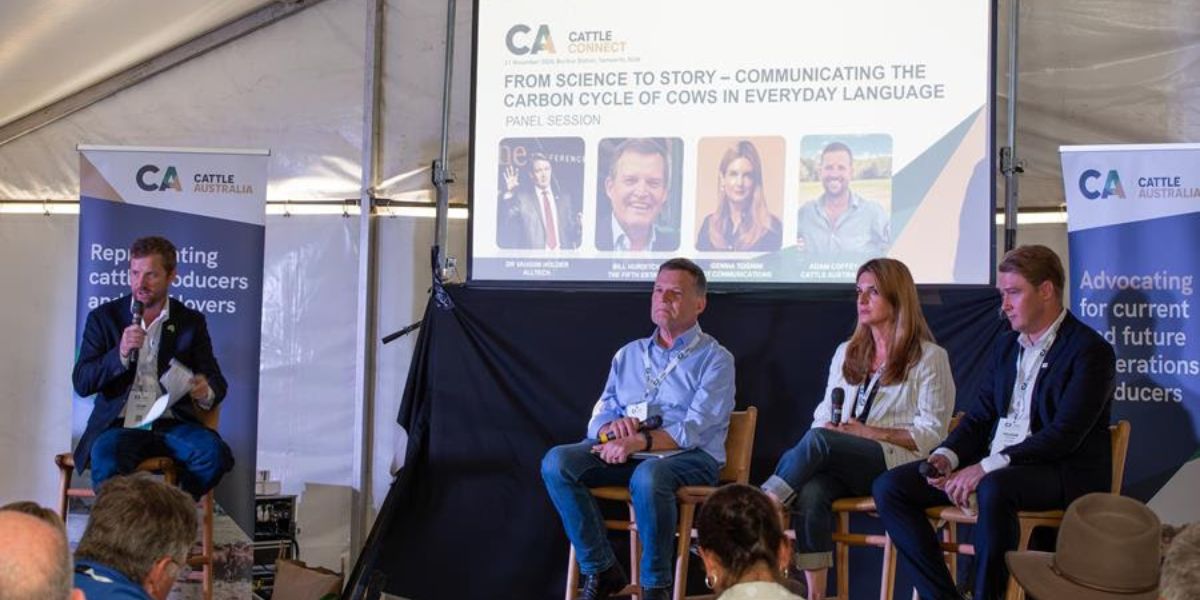The Australian cattle industry has been challenged to take up the fight and provide consumers with the permission they are seeking to feel good about eating beef.
A series of speakers at the Cattle Connect producer day in Tamworth today encouraged producers not to shy away from the complex role of cattle in the carbon cycle, but rather build trust among consumers and be their credible source of information.
Political commentator Gemma Tognini, who participated in a panel discussion alongside ecologist and founder of The Fifth Estate, Bill Hurditch, and Alltech Global Beef Research Director, Dr Vaughn Holder, said industry must “get in the ring” and be part of the contest of ideas.
She warned such debates were never smooth, but “we have got to position ourselves as the primary source of credible information on this issue”.
“One of the challenges is to take this complex issue and make it palatable to people in the middle,” Ms Tognini said.
“It’s about breaking down the messages into audience-appropriate information.”
“When it comes to someone like me who’s walking down the supermarket aisle … I want to feel good about my purchase and know that it’s been produced as sustainably as possible.”
More than 500 people attended the inaugural Cattle Connect event, which was created by Cattle Australia to unite grass-fed producers with every link in the supply chain, to share knowledge and encourage collaboration.
The panel tackled the topic of ‘From Science to Story – communicating the carbon cycle of cows in everyday language’, following a presentation by Dr Holder on the latest science on the role of grazing cattle in natural carbon sequestration cycles.
Dr Holder pointed out that without cattle in the environment, the methane released by fermenting forage was far higher, with cattle critical to converting inedible organic matter into edible protein for human consumption.
“This conversation needs to be in the context of food security for the world because that frames the type of solutions we can use to address climate challenges,” he said.
Dr Holder’s research was highlighted in the feature-length documentary World Without Cows, which was screened for the first time in Australia at Cattle Connect.
The panel agreed that the documentary sent a powerful message but was only part of the suite of communications tools needed to reassure the 99 per cent of the general public that enjoy red meat.
“We need to be really careful about the conversations we have and the way we have them,” Mr Hurditch said.
Rather than directly criticise people who are misinformed, he recommended “sitting side by side” with people and to build trust by using questions to start a conversation.
“Then you can talk about all the fantastic things there are about livestock,” he said.
Read all the way through to the end of the story? So did lots of other people. Advertise with New England Times to reach New England locals who are interested and engaged. Find out more here.

